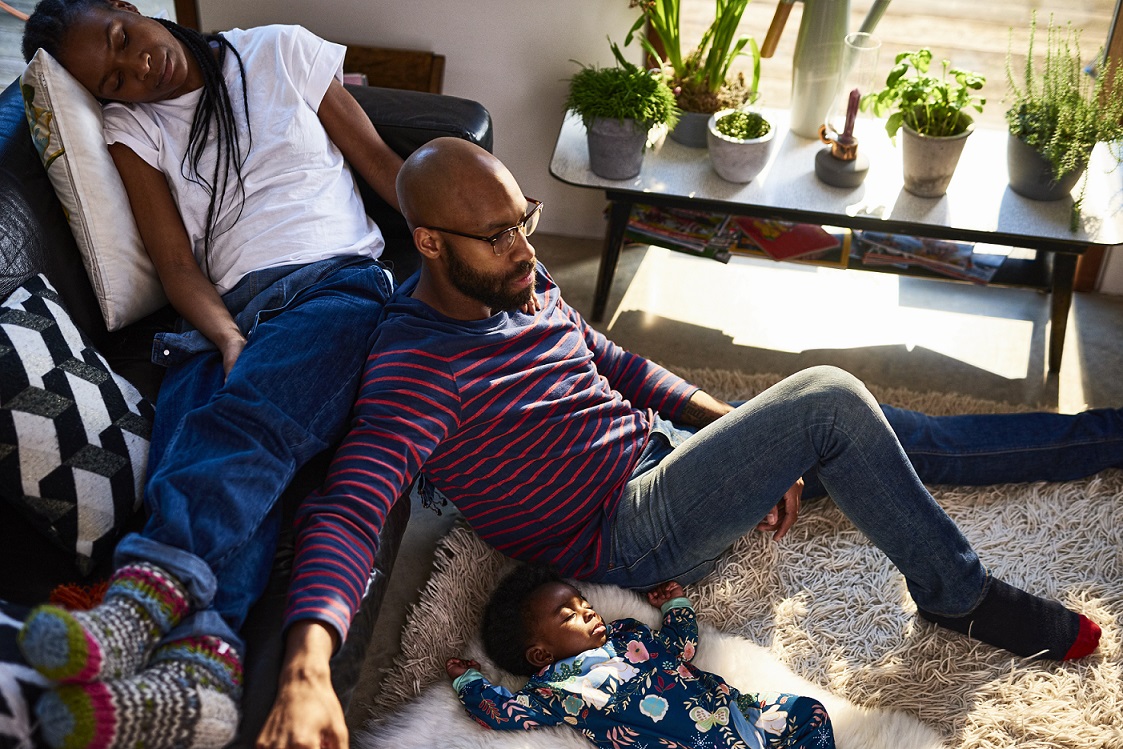
Tiny feet can be deceptively loud. Mitigate noise by following the 80% carpet rule. (Getty Images).
New York City is not the place to live if you’re looking for peace and quiet. Street noise abounds with sirens, car horns, and the rattle of trains. There’s no refuge indoors either as apartment buildings are densely populated and building materials like plaster and wood floors are poor sound insulators. Still, landlords look for solutions to keep the noise in their buildings to a minimum so tenants can have a decent quality of life. One of the ways to do this is by requiring tenants to cover their floors to mitigate noise. This is often referred to as the 80% carpet rule in NYC.
What Is the 80% Carpet Law?
While there is no “NYC law” regulating carpet or rug coverage, leases and co-op agreements will often have a clause stipulating residents cover 80% of their floors with carpeting. This is to prevent noise from reverberating throughout the building and particularly, as a courtesy to nearby neighbors. If your apartment has wood, tile or laminate floors, chances are you’ll be asked to cover a portion of them to keep noise to a minimum. Sure, walking and moving about your home is a normal daily activity. However, footsteps can be distracting and noisy, especially if someone wears heels, has small children, or pets.
To remain in your neighbors’ and landlord’s good graces, your best bet is to cover the areas that get the most foot traffic. Logically, the living spaces and bedrooms should use area rugs and probably the hallways, but not the bathrooms and kitchen.
Consequences for Not Complying
Don’t expect your landlord to do a walk-through of your space to ensure you are in compliance. The rule typically isn’t enforced until there are complaints made about the noise. However, if the 80% rule is outlined in your lease or co-op agreement, not complying can put you in violation.
“To the extent that a housing unit occupant is causing noise to negatively affect a downstairs neighbor, the 80 percent rule is valid and enforceable,” explains Eduardo Fajardo, a lawyer with De Lotto & Fajardo LLP. “Failure to abide by the rule can lead to eviction. However the default is curable by simply installing the 80 percent floor covering as may be required by the subject lease or condo co-op rules.”
Manhattan Rentals Under $4,000 a Month Article continues below
In other words, if the noise becomes a nuisance, you can be evicted unless you decide to comply with the rule. Don’t draw attention to yourself by practicing your latest tap-dance routine at home. Keeping impact noise to a minimum will keep your landlord or co-op board out of your hair.
Noise-Reducing Tips
Having a contractor professionally soundproof your apartment is costly, but there are a few small, inexpensive tweaks you can do to mitigate the impact noise in your home.
- Remove your shoes: This is a no-brainer and will keep your home clean, too.
- Furniture pads: Placed on the bottom of furniture legs, these pads will mitigate noise and also prevent scratches and scrapes to the floor when moved.
- Rug pads: Add foam or felt rug pads under your rugs. They add an extra layer of noise protection, plus prevents the rug from slipping.
How to Deal With a Noisy Neighbor
Being on the receiving end of a clunky upstairs or next-door neighbor can wreak havoc on your sanity, too. Here are some tips on how to deal with the situation.
- Be direct, but polite: If you live in a small building and know who the neighbor is, visit them in person or slip a note in their mailbox of under their door. The best approach is to kill them with kindness. Simply state the problem and ask if they can be more conscious of their movements and actions. They may not even be aware they are causing a disturbance. Perhaps they will accommodate you without making a fuss or even install carpeting to help minimize the noise.
- Go through your landlord: If your neighbor is uncooperative or you live in a larger building, report the issue to your landlord. They’ll know if there is a floor covering clause in the lease agreement, and have more leverage to get the tenant to comply. Keep a log with the dates and times the disturbances occur and provide it to your landlord or co-op board as evidence of an ongoing issue.
Brooklyn Rentals Under $4,000 a Month Article continues below
—
Got an interesting NYC real estate story or a hot tip? Send it to us at tips@streeteasy.com. (You will remain anonymous.) And hey, why not like StreetEasy on Facebook and follow @streeteasy on Instagram?